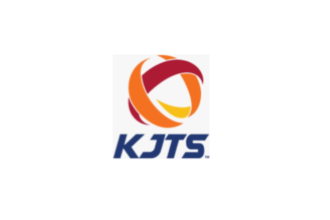71% respondents across 17 international markets are concerned about AI- enhanced scam threats
New data from YouGov Surveys, conducted across seventeen international markets, reveals that nearly six in ten global respondents (59%) feel either very or fairly confident in their ability to identify financial phishing scams. Leading the way in confidence are Britons, with 74% expressing assurance in detecting such frauds, followed closely by Australians (72%) and Americans (71%).

Other markets showing high levels of confidence include Canada (68%), Indonesia (66%), India (65%), and both the UAE and Denmark at 63%. In contrast, Spain, Mexico and Poland report the lowest levels of confidence, with only 35%, 36% and 38% of respondents respectively feeling capable of spotting phishing attempts.
Despite widespread confidence, more than half of respondents globally (52%) admit they are still concerned about falling victim to a financial phishing scam. Concern is particularly high in Singapore (72%), Indonesia (70%), and India (69%). Significant proportions of respondents in Australia, Mexico, and the UAE (64% each), as well as in France (59%), also report strong apprehension around the issue.

One of the key drivers of this anxiety appears to be the growing use of artificial intelligence (AI) in crafting more sophisticated and convincing phishing attacks. While several APAC countries, notably Singapore, Indonesia, and India, show the highest overall concern about phishing scams, AI-enhanced scam fears are equally strong in both Asian and Western markets. Concern is highest in Singapore and Australia (80% each), followed closely by the UK (79%). At least three-quarters of Americans (76%), Canadians (76%), Indians, and Indonesians (75%) also express worry about AI-driven phishing tactics.

When asked about who should bear the responsibility for protecting against phishing, global opinion is evenly split. Respondents believe that both individuals and banks share the responsibility equally. While nearly three-quarters (74%) say banks should do much more to educate customers about phishing scams, an identical proportion (74%) agree that individuals need to take more personal responsibility as well.
In terms of current support, just over half of respondents (53%) believe their bank provides a good level of protection against phishing threats. Additionally, 37% say they have received phishing awareness training from their bank, with most of those who did finding it either very or somewhat helpful.
Looking ahead, respondents expressed varied preferences on how often they’d like to receive phishing awareness updates. Nearly half are open to regular updates, with 13% preferring weekly communication and 30% favoring monthly updates. 19% prefer quarterly updates, while 17% would only like to be informed when a major new scam emerges.
Methodology: YouGov Surveys: Serviced provides quick survey results from nationally representative or targeted audiences in multiple markets. The data is based on surveys of adults aged 18+ years in 17 markets with sample sizes varying between 502 and 2,124 for each market. All surveys were conducted online during January 2025. Data from each market uses a nationally representative sample apart from Mexico and India, which use urban representative samples, and Indonesia and Hong Kong, which use online representative samples. Learn more about YouGov Surveys: Serviced.
Legal Disclaimer: The Editor provides this news content "as is," without any warranty of any kind. We disclaim all responsibility and liability for the accuracy, content, images, videos, licenses, completeness, legality, or reliability of the information contained in this article. For any complaints or copyright concerns regarding this article, please contact the author mentioned above.












